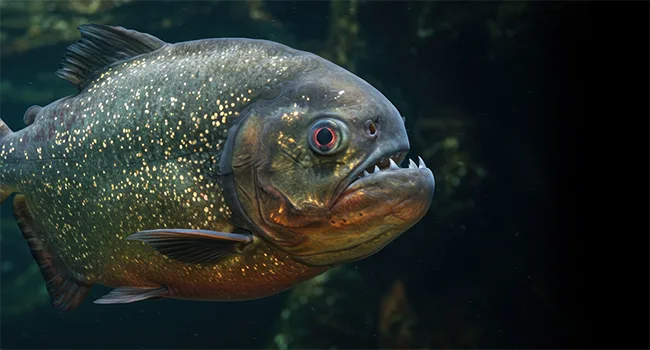Sri Lanka will ban four species of invasive ornamental fish, including the notorious Piranha after they were found to be wreaking havoc on local ecosystems by escaping into rivers and lakes, the country’s Fisheries Minister Ramalingam Chandrasekar announced on Wednesday.
“We want to protect our inland water bodies from invasive species,” Chandrasekar said in a statement, noting that the move is aimed at safeguarding freshwater biodiversity and the livelihoods of local fishermen.
Beginning Saturday, the import, sale, and transportation of Redline Snakehead, Knife Fish, Alligator Gar, and Piranha will be officially prohibited. These predatory species, originally imported from Southeast Asia as ornamental pets, have increasingly been spotted in the wild, raising alarms among conservationists and fisheries officials.
In particular, Redline Snakeheads — which can grow over one metre (three feet) in length — have been multiplying rapidly in Deduru Oya, a lake in northwestern Sri Lanka. Authorities believe the fish were released by private aquarium owners unable to care for them as they grew larger and more aggressive.
“These fish are devastating native species and severely disrupting the ecological balance in our freshwater systems,” Chandrasekar warned.
To support the ban, the Fisheries Ministry has launched a public fishing competition on Saturday to encourage the capture and removal of Snakeheads from affected water bodies.
Snakehead fish are voracious predators that feed on smaller native fish, amphibians, and even small mammals. Their presence poses a significant threat to biodiversity and can lead to the collapse of delicate aquatic ecosystems. Despite their impact, Snakeheads are not commonly consumed in Sri Lanka, limiting natural control through fishing.
Pet owners currently keeping any of the four banned species have been instructed to report them to the authorities. The fish will be collected and relocated to state-run aquariums, where they can be kept under controlled conditions to prevent further environmental damage.
The government’s action aligns with global efforts to regulate invasive aquatic species and highlights growing concerns over the unintended consequences of the exotic pet trade.
AFP


